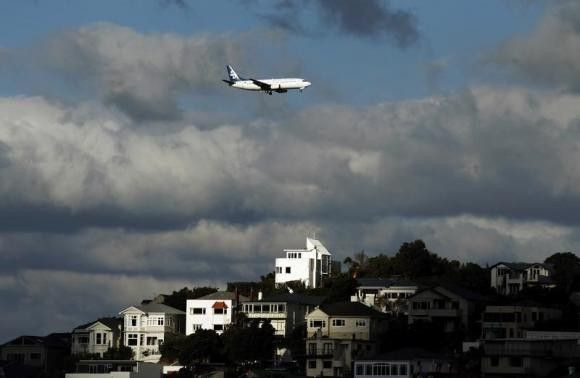New Zealand Greenhouse Gas Emissions Still Above 2020 Levels Ahead Of Paris Talks

The net greenhouse gas emissions in New Zealand have soared 42 percent with gross emissions, making the country the fifth highest per capita among 40 developed nations. The figures were recently released based on the new greenhouse gas inventory of the Ministry for the Environment.
The data has raised doubts about the government’s ability to reach its emissions reduction target of five percent from 1990 levels by 2020. Gross emissions had risen 21 percent between 1990 and 2013. The difference between gross and net emissions reflects the flow of carbon in and out of forests and changes in land use.
New Zealand’s Climate Change Minister Tim Groser said afforestation had exceeded deforestation in the last six years. However, according to the Ministry for the Environment’s report, the annual deforestation had an average of 8500 hectares since 2008. The report said it was more than the average age of a new forest planting over the same period.
The increase in gross emissions since 1990 is attributed to a rise in nearly a third in greenhouse gases from the energy industry including electricity generation and road transport. Agricultural emissions increased to a conservative 14 percent in more than 20 years. Emissions from the sector still account for nearly half of the country’s total emissions.
Meanwhile, Groser, the Minister Responsible for Climate Change Issues, has declared that greenhouse gas emissions have eased as New Zealand remains well above the 2020 target. He remains confident that New Zealand can meet its international commitments in addressing climate change. To further help it reach its goal, New Zealand will need to delve into international markets for carbon offsets, reports Stuff.
New data from the ministry revealed that carbon emissions were 81 million tonnes in 2013. The figure is above the 1990 level of 66.7 million tonnes. New Zealand’s total emissions were 1.1 million tonnes or 1.4 percent lower than in 2013 than 2012. The report said most of the decline was due to the high levels of water in hydro lakes, which in turn reduced emissions from electricity generation.
Groser, who left for Washington last April 15 for a meeting on climate change, will be an observer at a meeting of the Major Economies Forum on Energy and Climate Change. The forum seeks to hasten the progress of negotiations to arrive at a future climate change deal in Paris in December.
To report problems or leave feedback on this article, contact: r.su@ibtimes.com.au





















